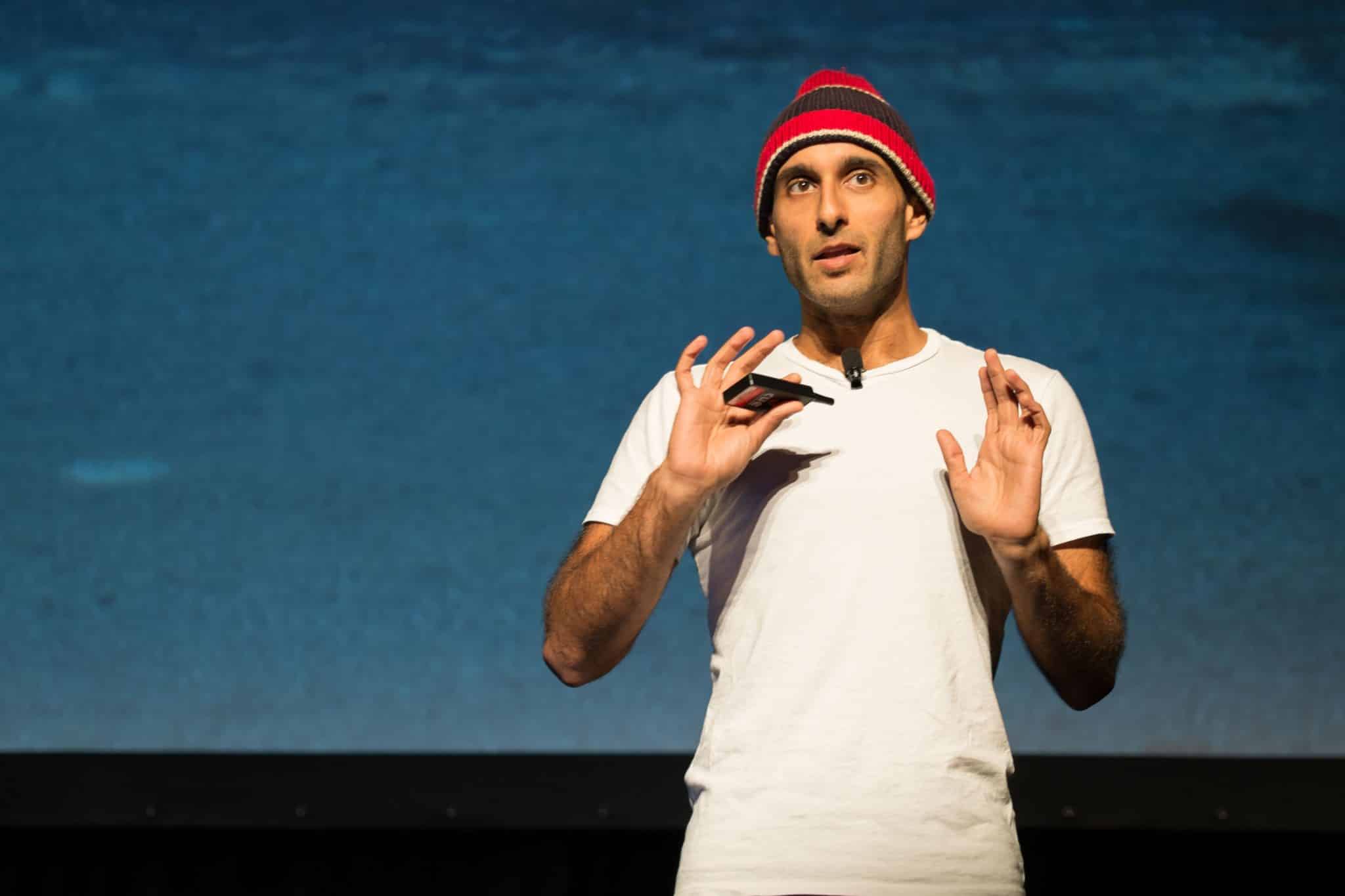What a Graduate of Harvard, Oxford, and Yale Has to Say on Writing Romance, Struggles of a Woman, and Being A 21-Time NYT Bestseller

In celebration and recognition of Women’s History Month, we wanted to spotlight some of the tremendously talented women within the Freedom community who are using their Freedom to shape the world each and every day.
One such woman is Mary Bly, also known as best-selling romance writer Eloisa James. A graduate of Harvard, Oxford, and Yale, (and that’s just the start of her resume), she is a 21-time NY Times bestseller and tenured Shakespeare professor at Fordham University. A writer, professor, businesswomen, and mother of two, with phenomenal experience and credentials, we figured we’d let her explain just how she manages to find the time and focus to do it all.
With so much good stuff to say, we’ll be breaking Eloisa’s interview into parts 1 & 2. You can now read part 2 here!
First of all, how did you break into your industry – how did it all start for you?
I started writing historical romance, because I needed to pay off my student loans. At that point, I was a junior professor, as was my husband. We both got our PhDs at Yale, and then we ended up with one baby and two jobs—in different states. And I had serious student loan debt, most of which was from getting an M.Phil at Oxford, because there is no financial aid to go to England. Alessandro declared that we couldn’t possibly have another baby; I had too much debt. So I thought, I’m going to write something and pay those loans off. I had always loved romance – I read a ton of it in high school – and so I wrote one and sent it off to an agent. It went up for auction and sold for a few thousand dollars over my student loans. The baby was on the way a couple of months later!
What are some the biggest challenges you’ve faced as a woman in your industry and how have you dealt with them?
I didn’t face many as a writer because romance is a women-driven industry, largely edited and written by women. However, I faced serious challenges as a Shakespeare professor. For many years it bothered me that my husband and I graduated from Yale in the same year, both getting jobs at the same level, and yet he started out several thousand dollars ahead of me. I was breastfeeding. I had 8 call backs as they are called, but I couldn’t take them all as every one meant 3-4 days away from the baby. So I accepted the first job I could—which is what many women do. My husband didn’t. He went ahead and got another couple jobs, even though he knew he wasn’t going to take them, and then he played the salary off each other. I didn’t do that. If I hadn’t been breastfeeding, I might have gone ahead and tried for more jobs and then played them against each other, but I came up against a classic problem women face.
When I became a professor, I had to keep Eloisa secret for a long time. That has to do with prejudice against the romance genre, which academics consider a women’s ghetto. They think that no one who is educated could possibly be writing or reading it. When in fact, we have enough New York Times bestselling authors with Harvard degrees to make up our own volleyball team—and our readers come from every class and include 12% male readers. I didn’t tell anyone in my department until I was already tenured and that I had hit the NYT list.
I ran into another problem when I came up to promotion to full professor. At that point, it was possible to deny people the right to even apply through a secret voting system. The word came back to me that my scholarship should match my writing. At that point, I had directed the creative writing program, and I had hit the Times list 15 times. I also had the requisite number of articles for full [professorship]. The next year I flatly told the chair that I was either allowed to apply or I would sue for the right. Then I was promoted and we got rid of the secret blackball system, which was ridiculous.
I’ve tried to change the conversation in full professor meetings to: “Why would you possibly deny one of your colleagues a raise?” because that’s what it comes down to, right? Since then, we have lots of full professors. I think that is something that women face in every profession, and we need to fight for each other. We need to break the window and then fight for those that are coming up after us, because for some reason things are far slower to change than I would have imagined as a newly-minted professor. There was and is an academic bias.
Part of the problem stems from something I see in many professions. Women are praised up the wazoo for doing all the committee work, and for seeing students so much more than needed. It’s all celebrated except you don’t get to the top. You hit a hit a ceiling because you are doing loads of pastoral work and BOOM, you don’t get promoted because you haven’t written as many books as the people who avoid committees
How do you stay motivated and focused?
Well, actually I use Freedom for that. I’ve given myself a Pavlovian response at this point., because I have a lot of work. I’m a full-time Shakespeare professor and I am one of the lead authors at HarperCollins, which means that a book has to go in on time because it will be the lead book for that month. So I can’t screw around and get writer’s block – I just can’t do it. In the time that I have to work, I have to really do it. What I’ve done is train myself that when I click that butterfly and put on a three-hour block, I write. It’s like parenting—when you have a little baby and other work to do, you have to tell yourself in the moments when you’re playing with the baby, “This is what I’m supposed to be doing now.” I don’t think about the 300 emails waiting for me. Freedom helps me do that. After I click on it, it’s a psychological nudge: “This is what I’m supposed to be doing now.” Not laundry, not worrying about my teenager, no hundreds of emails.
What is the most rewarding aspect of your work?
Oh, it’s the readers. If you’re writing literature, you’re often writing to change a part of the world, or right a great injustice. Catch 22, for example, changed people’s idea of war. But if you’re writing romance, you’re writing escape fiction. At best, you are providing someone escape from a harsh reality, but that can also change someone’s world. The letters that come from readers are wonderful, and I do get a lot of letters. For example, “my mother’s in the hospice, and we read a lot of your book and she laughed and that meant a huge amount to me and I want you to know.”
I am read by women having chemo. I am read by women who are in the army, who are in Afghanistan or Iraq. I got a letter the other day from a woman who was living with ten people in a room in Syria. She basically said, “I’m in an unbearable situation and I just want you to know that I have three of your books and they have made an incredible impact.” So I was like “WHOA! That’s crazy!” It keeps you going. I don’t need to write for money any longer, the way I did when I started. Now I write because I love it and also because these letters are fulfilling.
If you’d like to learn more about Eloisa James or where to find her books, you can check out her website here!


